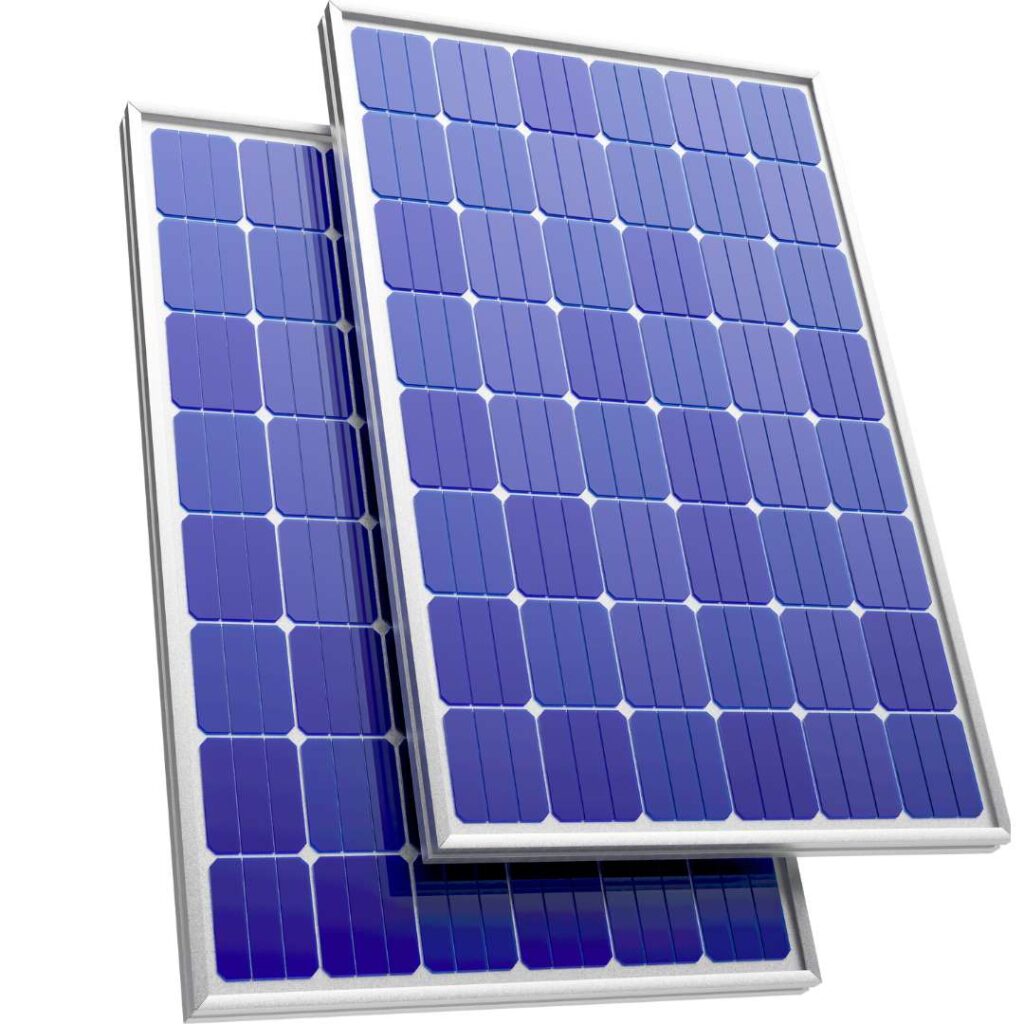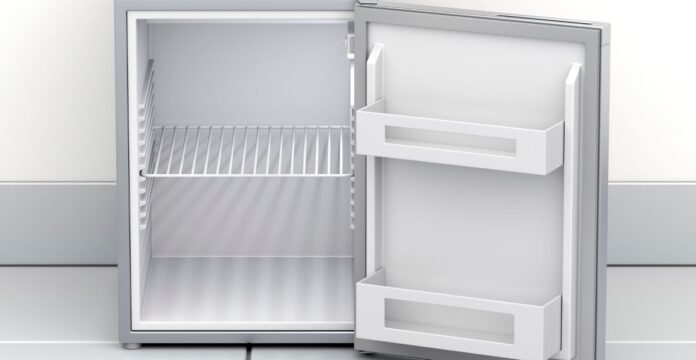Glamping is all about enjoying the great outdoors while not giving up the comforts of modern living. One of the most important aspects of a comfortable glamping experience is keeping your food and drinks cold, which is why a camp fridge is essential. But the big question on many glampers’ minds is: Can I power my camp fridge with solar energy? The answer is a resounding yes! However, there are some key considerations to ensure that your solar setup is efficient and reliable.
Understanding the Basics: How Solar Power Works for Your Camp Fridge
To power your camp fridge with solar energy, you need a few essential components:
- Solar Panels: These capture sunlight and convert it into electricity. The amount of power your solar panels can generate depends on their size, efficiency, and the amount of sunlight they receive.
- Battery Bank: Solar panels produce power during the day, but your camp fridge runs 24/7. A battery bank stores the excess power generated during the day so your fridge can run at night or during cloudy weather.
- Charge Controller: This device regulates the power going from the solar panels to the battery bank, preventing overcharging and protecting the batteries.
- Inverter: If your camp fridge operates on AC power, you’ll need an inverter to convert the DC power stored in the batteries into AC power.
Calculating Your Camp Fridge Power Needs
Determining how many solar panels are needed to power an average camp fridge involves several factors, including the power consumption of the fridge, the efficiency of the solar panels, and the amount of sunlight available. Here’s a detailed breakdown to help you calculate the right number of solar panels to power your camp fridge:
Determine the Power Consumption of the Camp Fridge
The first step is to know the power consumption of your camp fridge, typically measured in watts. Most camp fridges consume between 40 to 100 watts per hour, depending on their size, efficiency, and the ambient temperature. Most camp fridges will have this information listed on a label or in the user manual.
For example, let’s assume your camp fridge consumes 60 watts per hour.
Calculate Daily Energy Consumption
Next, you need to calculate the total energy consumption over a 24-hour period.
- Hourly Consumption: 60 watts
- Daily Consumption: 60 watts × 24 hours = 1,440 watt-hours (or 1.44 kWh)
Estimate Available Sunlight Hours
The amount of electricity your solar panels can generate depends on the number of peak sunlight hours available each day. Peak sunlight hours are the hours when the sun is strong enough to provide the maximum output from your panels. This varies based on your location and time of year but typically ranges from 4 to 6 hours per day.
Let’s assume you have 5 peak sunlight hours per day.
Calculate the Required Solar Panel Capacity
To find out how much solar panel capacity you need, divide the daily energy consumption by the number of peak sunlight hours:
- Required Solar Panel Output: 1,440 watt-hours ÷ 5 hours = 288 watts
This means you would need solar panels capable of producing at least 288 watts during peak sunlight hours to fully power your camp fridge.
Choosing the Right Solar Panels for Your Camp Fridge
Selecting the right solar panels for your camp fridge is a crucial decision that directly affects your ability to keep food and drinks cold during your outdoor adventures. Whether you’re planning a weekend getaway or an extended off-grid expedition, the type and number of solar panels you choose will determine the reliability and efficiency of your power setup.
Monocrystalline vs. Polycrystalline Solar Panels
When it comes to choosing solar panels, two main types dominate the market: monocrystalline and polycrystalline panels. Each has its own set of advantages and trade-offs that are important to consider based on your specific camping needs.
Monocrystalline Solar Panels
Monocrystalline panels are known for their high efficiency and sleek, space-saving design. These panels are made from single-crystal silicon, which allows them to convert sunlight into electricity more efficiently than polycrystalline panels. This higher efficiency means that monocrystalline panels can produce more power per square foot, making them ideal for situations where space is limited—such as on a compact camping setup.
For campers looking to maximize power output while minimizing the amount of space taken up by solar equipment, monocrystalline panels are an excellent choice. Their higher efficiency also makes them a good option for locations with less direct sunlight or shorter daylight hours, where every bit of captured energy counts.
- Pros: Highest efficiency, compact size, ideal for limited space.
- Cons: Generally more expensive.
Polycrystalline Solar Panels
Polycrystalline panels, on the other hand, are made from multiple silicon crystals. This makes them slightly less efficient than monocrystalline panels, but they come at a lower cost. If you’re on a budget and have ample space for your solar setup, polycrystalline panels can be a cost-effective way to generate the power you need.
While they may require more surface area to generate the same amount of power as monocrystalline panels, polycrystalline panels are still a viable option for powering a camp fridge, especially in sunny locations where panel efficiency is less of a concern.
- Pros: Lower cost, suitable for larger areas.
- Cons: Slightly lower efficiency compared to monocrystalline.
Battery Capacity: Keeping Your Camp Fridge Running Day and Night
A reliable battery bank is essential for ensuring your camp fridge runs continuously, even when the sun isn’t shining. Deep cycle batteries, such as AGM or lithium-ion, are popular choices for solar setups because they can be discharged deeply and recharged repeatedly without damaging the battery.
When sizing your battery bank, aim for at least double the daily energy consumption of your fridge to account for cloudy days or periods of low sunlight. For instance, if your fridge consumes 1.44 kWh per day, a 100Ah 12V battery (which stores about 1.2 kWh) might cover one day’s use, but having two or more batteries would provide extra reliability.
The Role of a Charge Controller
The charge controller is an often-overlooked but critical component of a solar power system. It ensures that the batteries are charged at the correct voltage, protecting them from overcharging, which can shorten their lifespan. A quality charge controller will also help maintain the overall efficiency of your solar setup, ensuring that your camp fridge receives steady, reliable power.
Inverters: When You Need AC Power
If your camp fridge requires AC power, an inverter will be necessary to convert the DC power from your batteries into usable AC power. Pure sine wave inverters are the best choice for sensitive electronics, as they produce a cleaner and more stable power output compared to modified sine wave inverters.

Popular Solar Panel Brands for Camping
When selecting solar panels for your camp fridge, consider reputable brands known for their reliability and performance in outdoor conditions. Here are a few popular options:
- Renogy: Offers a wide range of solar panels, including monocrystalline, polycrystalline, and flexible options,suitable for various camping needs.
- Goal Zero: Specializes in portable power solutions, including solar panels, for outdoor enthusiasts.
- Jackery: Provides portable power stations with integrated solar panels, offering convenience and versatility.
- SunPower: Known for high-efficiency monocrystalline panels, ideal for maximizing solar energy harvest.
Camping Scenarios and Solar Panel Recommendations
When it comes to keeping your food and drinks cold during camping trips, a camp fridge can be a game-changer. But to ensure it stays powered, especially when you’re off the grid, you need a reliable energy source. Solar power is an excellent choice for campers who want a sustainable and portable solution. Depending on the duration of your trip and the size of your fridge, there are several options to consider. Here’s how you can tailor your solar setup to match your camping needs.
Weekend Camping with a Small Fridge
For weekend warriors who enjoy short camping trips, a small fridge is usually sufficient for storing essentials like beverages, snacks, and perishable items. Since these trips are often just a couple of days long, you don’t need an extensive solar setup. Instead, you can opt for a more compact and portable solution.
Option 1: Portable Solar Kit with 100-150W Monocrystalline Panel
One of the most convenient options for powering a small fridge on a weekend camping trip is a portable solar kit that includes a 100-150W monocrystalline solar panel, a small battery, and a charge controller.
Monocrystalline panels are highly efficient and space-saving, making them ideal for portable setups. A 100-150W panel can generate enough power to keep a small fridge running, especially when paired with a compact battery that stores excess energy generated during the day. The charge controller ensures that the battery is charged safely and efficiently, preventing overcharging and prolonging its lifespan.
This setup is perfect for campers who want a plug-and-play solution that’s easy to transport and set up at the campsite. With a portable solar kit, you can enjoy the convenience of a powered fridge without worrying about running out of juice.
Option 2: Flexible Solar Panel for Mounting on RV or Tent
For those who prefer a more integrated solution, a flexible solar panel is a great choice. These panels are lightweight and can be easily mounted on your RV, tent, or even the roof of your vehicle. Because they’re flexible, they can conform to curved surfaces, making them highly versatile.
A flexible solar panel in the 100-150W range can provide sufficient power for a small fridge, and its easy installation means you can set it up quickly wherever you camp. This option is especially convenient for campers who want to maximize space and minimize setup time.
Extended Off-Grid Camping with a Larger Fridge
If you’re planning an extended off-grid camping trip or need to power a larger fridge, your solar power needs will be more substantial. In this case, you’ll need a more robust and capable system to ensure that your fridge stays powered for the duration of your trip, regardless of weather conditions.
Option 1: Larger Solar Panel System with Multiple Panels
For longer trips and larger fridges, investing in a larger solar panel system is essential. This typically involves multiple 100-200W solar panels, a deep-cycle battery, and a robust charge controller.
Multiple panels allow you to generate more power, which is crucial for keeping a larger fridge running continuously. Deep-cycle batteries are designed to handle long periods of use, making them ideal for storing the significant amount of energy needed for extended camping trips. A robust charge controller will manage the power flow from the solar panels to the batteries, ensuring that your system operates efficiently and safely.
This setup is perfect for campers who need a reliable and scalable solution for off-grid power. Whether you’re camping in a remote location for a week or more, a larger solar panel system will provide the energy you need to keep your fridge and other essential devices powered.
Option 2: Portable Power Station with High-Capacity Battery
For those who prefer a more portable and self-contained solution, a portable power station with a high-capacity battery is an excellent option. These power stations are essentially large batteries with built-in inverters and multiple outlets, allowing you to power your fridge and other devices directly.
A high-capacity portable power station can store enough energy to keep a large fridge running for several days. Many models can be recharged via solar panels, so you can use them in conjunction with your solar setup to extend their runtime even further. This option is ideal for campers who want the flexibility to move their power source around the campsite or take it on other adventures.
Conclusion: Solar Power is a Viable Option for Your Camp Fridge
Yes, you can power your camp fridge with solar energy, and with the right setup, it’s not only feasible but highly efficient. By carefully planning your solar system and understanding your power needs, you can enjoy cold food and drinks on your camping adventures without relying on traditional power sources. Solar power offers a sustainable, environmentally friendly solution that enhances the freedom and flexibility of off-grid camping. Whether you’re on a weekend trip or an extended expedition, solar energy can keep your camp fridge running smoothly, making your outdoor experience more enjoyable and convenient.


